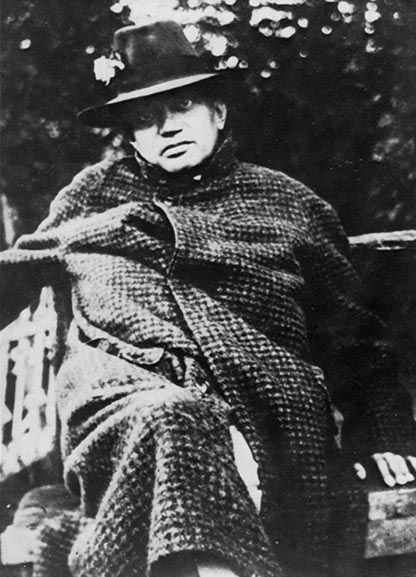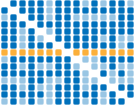Ady Endre: Vén diák üdvözlete
Vén diák üdvözlete (Hungarian)Zilahra menjen ez a félig-síró, Félig-vidor ének. Vén, kóbor diák küldi könnyek között Az ősi Schola fő-magisterének.
Az ősi Schola már meg is ifjodott Gyönyörűn azóta. Csak minket csókolt öregre az idő, Távolság, küzdés, eszme, bor és nóta.
Páris rikolt rám, míg e verset szövöm, Én, régi diákod. Én jó mesterem, jó görög tanítóm, Ma is átok még az ős görög átok.
Homérosz s felhős görög tragédiák Vágnak a szívembe. Te beszélsz és mi, nebulók, hallgatunk, Istenem, istenek, mintha csak ma lenne.
Pedig Homérosz kék ege beborult. Istenek és hősök Hullnak azóta szivemből szüntelen, Hogy az élettel küzdök, kergetőzök.
Anér, és andrósz a genitivusa, Én jó, bölcs tanárom? Beh elfeledtem görögül s férfiúl, Már csak a sorsot, a végzetet várom.
Arcomon ma is áldott tekintetét Szemeidnek érzem. Mennyit biztattál és az élet-öröm Nem jön el hozzám, nem jön mégsem, mégsem.
Hogy szép az élet, te mondtad szüntelen S hogy higgyük: akartad. S míg játszadoztak rajta bús mosolyok, Erőt és hitet prédikált az ajkad.
Te bérmáltál meg, kis, vidéki lapod, Hogy poéta lettem. Múltak az évek s én, verselő diák, Öreg mesterem, hozzád-öregedtem.
Te állsz előttem, ha már-már nem bírom, Mint az élet tússza, Szép bölcs fejeddel, mely hogyha akarod, Vagy nem akarod, meg lesz koszorúzva.
Úgy ér az ünnep: állasz lombtalanul. Volt egy rózsa-ágad: Letépte a sors, a cudar és görög. Ugye hinni kell a mithosz-világnak?
És úgy állok én, mint te: lombtalanul S még emlékem sincsen. Másokért élünk, mi mindig csak adunk: Így rendelte el ezt a Végzet-Isten.
Nem baj: zöldelnek a zilahi hegyek, Vidám pince-katlan Egy csöpp örömet, egy kicsi feledést Ad annak, kihez a sors irgalmatlan.
És mégis-mégis koszorús fejedet, Ím, most sokan áldják. És mégis-mégis, ha nem is örömest, Szép megkísértni az élet talányát.
És mégis-mégis, magam is itt vagyok Ünnep-kocsit tolni S én jó mesterem, szeretném a kezed Áldva-átkozva, sírva megcsókolni.
|
An old pupil’s greeting (English)Half sorrowful, half joyful, may this poem Make its way to Zilah. In tears a wandering former pupil sends it To the headmaster of the ancient Schola.
Since then the ancient Schola seems to have grown Quite marvellously young, While the embrace of time, absence and struggle Has left us aged with worry, wine and song.
Paris shrieks at me as I compose these lines, I, your former pupil. My worthy preceptor, my dear Greek master, The old Grecian curse a curse today is still .
Homer and the misty tragedies of Greece Fill my very marrow. With you speaking and us schoolboys listening, My God, ye gods, it is as if it were now.
But Homer's azure sky has clouded over. His gods and his heroes Have fallen ceaselessly from my heart since then As I have struggled in life's desperate throes.
I remember anér, genitive andros; Wise teacher, am I right? But how much I have lost of Greek and manhood And I await only Nemesis and night.
I can feel today the gentle scrutiny Of your eyes on my face. But for all your encouragement joy in life Has never yet come to me, never, I say.
Ceaselessly you spoke of the beauty of life And willed us to believe. Strength and faith were the watchwords on your lips, and With them a smile that flickered so wistfully.
In your little local paper you declared That I was a poet. The years have passed, and I, the schoolboy scribbler, Have matured to your belief, old man, and own it.
You stand before me when I, as the hostage Of life, can bear no more; Your fine wise head shall bear this wreath of laurel Whether or not you desire that it be so.
So comes the feast-day; not a branch you have now Where once bloomed roses. Fate, that villainous Greek, has stripped you of them. One must have faith in the myth-world, oneŹsupposes.
And so stand I as you, with not a single branch Nor yet memorial. You and I have lived for others, only giving; The God of Fate has thus ordained our call.
No matter; around Zilah the hills are green, And cheery cellar-vat Will bring a little pleasure, a brief release, To one to whom no compassion comes from Fate.
And yet, and yet, behold a goodly number That bless your laureled head. And yet, and yet, though it bring little pleasure It is a fine thing to attempt life's secret.
And yet, and yet, I too myself am present To join the festive band, And, my dear teacher, it would make me happy, Blessed be I or cursed, in tears to kiss your hand.
|
||||||||||





